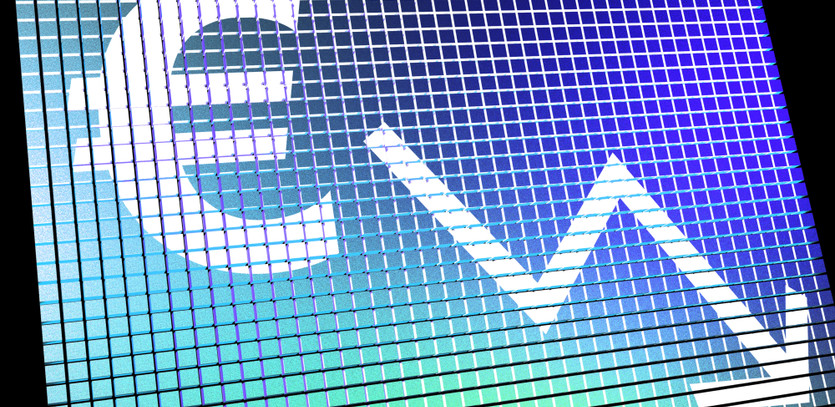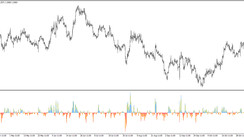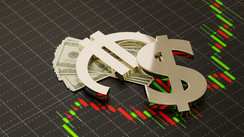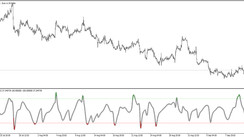Introduction to the Euro
The Euro, often seen as a cornerstone in global economics, serves as the linchpin of the Eurozone's monetary system. Its clout isn't just regional; globally, it's second only to the US dollar, thus cementing its place as the world's second-largest reserve currency. Nations as vast as France and as diminutive as San Marino have wholeheartedly adopted the Euro. This widespread acceptance underscores its dominant role in the world's financial dynamics, a role shaped by both economic strategies and geopolitical shifts.
Why Investors Look to Short the Euro
In the complex landscape of global finance, the Euro emerges as both a symbol and tool for international investors. When these investors interpret favorable winds for the Eurozone—signs of industrial growth, job market vitality, or burgeoning trade—they lean towards purchasing the Euro. The rationale is straightforward: the Euro's valuation often dances in tandem with interest rates, which tend to burgeon amidst economic optimism. Conversely, any indication of dipping interest rates, often signaling stormy economic weather ahead, could nudge investors to short sell the Euro. This isn't merely speculative gambling; it's a nuanced strategy. The Euro, with its heft, also serves as a fortress for investors, allowing them to hedge against unpredictable currency tumults that might shake their portfolios.
How Short Selling the Euro Works
For those uninitiated, the concept of short selling might sound convoluted, but at its core, it's a blend of strategy and prediction. Investors begin by borrowing a predetermined amount of the Euro, fortified with a commitment to repurchase later. This borrowed sum is then swiftly traded for another currency—say, the US dollar or the Japanese yen. If predictions hold and the Euro weakens against this new currency, then buying back the Euro becomes more cost-effective. The difference, once the initial borrowed amount returns to its source, crystallizes as profit. However, the world of short selling is as replete with risks as it is with rewards.
Reasons Behind a Decline in Euro's Value
Currencies, despite their stoic numbers and rates, are incredibly volatile, influenced by a myriad of interwoven factors. So, what might cause the Euro to lose its shine?
-
Debt and Deficits: Countries sinking under the weight of mammoth current account deficits or staggering debts, especially when these debts eclipse their GDP, often find their currency in jeopardy. It becomes a tangible reflection of a nation's economic health.
-
Inflation Dynamics: A swift and uncontrolled surge in inflation can corrode a currency's stature, raising red flags about the health of the national economy and hinting at potential economic turmoil ahead.
-
Interest Rate Fluctuations: The ebb and flow of interest rates play a pivotal role. A slump can drain a currency's strength, while a surge can provide it with a much-needed economic adrenaline shot.
-
Economic Uncertainty: When nations wander without a definitive economic roadmap, especially in turbulent times, their currency often bears the brunt. A hazy, unfocused approach to economic challenges can lead to waves of investor skepticism, pushing the currency into treacherous waters.
Shorting the Euro Using ETFs
In the dynamic realm of finance, while there are many roads to Rome, some paths are undoubtedly smoother than others. Shorting the Euro through established currency pairs, like EUR/USD, holds a classic allure for many. Yet, for the contemporary investor, this route can be fraught with volatility and unpredictability. That’s where Exchange-Traded Funds (ETFs) shine brightly, blending efficacy with sophistication. Why are ETFs the modern couturier's choice for navigating the currency runway?
-
Built-in Leverage: ETFs come with an innate advantage of leverage. This allows you to potentially amplify your returns without delving into the complexities of the futures or forex market directly.
-
Diversification: ETFs offer a basket of assets, which means you're not putting all your euros in one basket, so to speak. Diversification can dilute risks and offer a safety net against market swings.
-
Liquidity: Given their design and the nature of trading, ETFs boast high liquidity. This ensures that you can enter and exit positions with ease, a feature especially crucial in the fast-paced world of currency trading.
For those envisioning clouds over the Euro's horizon and anticipating a decline, two ETFs stand out as particularly stylish choices:
-
ProShares UltraShort Euro ETF (NYSE: EUO): This is the fashion-forward choice for those looking to double down on their bets against the Euro. With its ultra-short stance, it aims to deliver twice the inverse of the daily performance of the Euro.
-
Market Vectors Double Short Euro ETN (NYSE: DDR): An elegant option for the discerning investor, this ETN also offers double the inverse exposure to the Euro, with a slightly different composition and risk profile.
But what if your crystal ball foresees a radiant ascent for the Euro? Fret not, for the ETF world is replete with options that cater to Euro bulls:
-
CurrencyShares Euro Trust (NYSE: FXE): A classic, this ETF closely tracks the Euro’s performance, providing a pure-play exposure to the currency.
-
WisdomTree Dreyfus Euro (NYSE: EU): Distinguished and dynamic, it provides not just exposure to the Euro, but also interest income from short-term money market instruments.
-
Ultra Euro ProShares (NYSE: ULE): For those with a flair for the dramatic, this ETF offers double the daily performance of the Euro, magnifying both potential gains and risks.
-
Market Vectors Double Long Euro ETN (NYSE: URR): A splendid choice for investors bullish on the Euro, this ETN offers double the exposure, wrapped in a slightly different risk and reward package.
The world of ETFs is like a well-tailored suit: designed for fit, function, and flair. Choosing the right ETF is akin to selecting the perfect ensemble for a grand soirée— it's all about understanding the event (or market conditions) and making a statement with your choice.
Potential Perils of Short Selling
No investment strategy is devoid of shadows, and short selling is no exception. The towering risk in this landscape is the specter of infinite losses. While there's a floor to how low a currency can plummet (absolute zero), there's no ceiling to its ascent. This asymmetry means that while profits are capped, losses can spiral, potentially exceeding the initial investment. Tread carefully; the allure of gains can often blind investors to the precipices ahead. And, for those leaning on ultra-short ETFs, remember that they can mirror these exponential losses should the currency unexpectedly soar.





